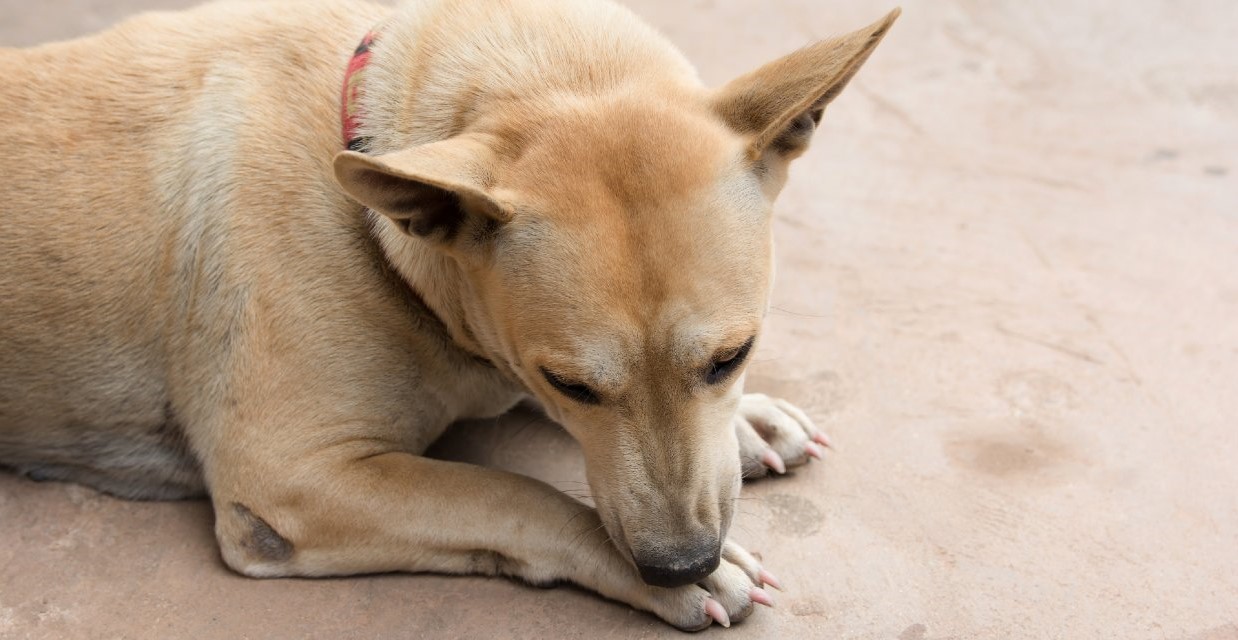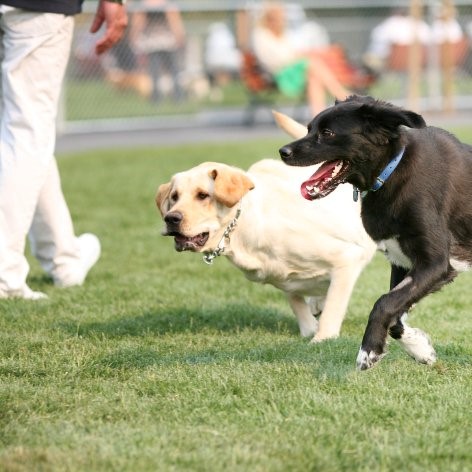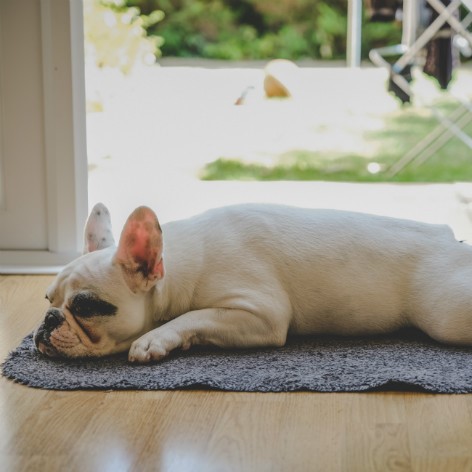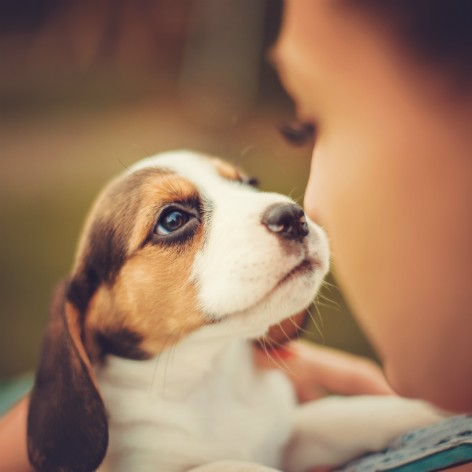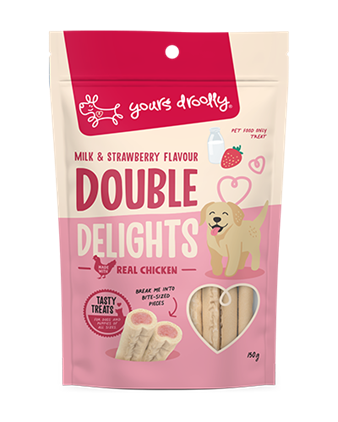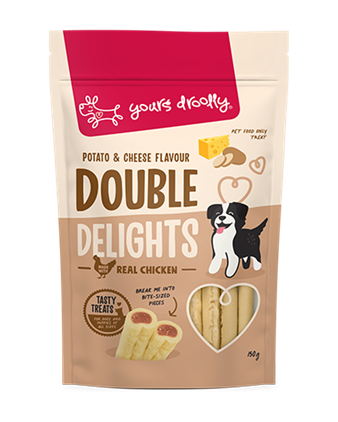Paw licking is a common problem in dogs but excessive paw licking can indicate a problem which should be addressed.
Why do dogs lick their paws?
Dogs lick their paws for a number of reasons.
- Their paws could be wet or dirty or they may be sore or itchy.
- Immune and dietary issues such as allergies to pollens, grasses or certain types of food can cause paws to itch, as can parasites.
- Sometimes, a foreign object like a grass seed or splinter may be lodged in or between the paw pads. Hairy dogs with fur between their toes can get mud stuck in their paws which can cause pain and irritation.
Yeast and bacteria can grow in-between the toes when the area stays warm and moist. This can cause the paws to become itchy, sore and smelly. Dogs might also lick their paw if they’ve sustained an injury to the area. Sometimes this can lead to a lick granuloma where the dog constantly licks the area causing an open sore on the skin.
Stress and anxiety can also cause dogs to lick their paws excessively. In this context the behaviour is self-calming as it can provide temporary relief or distraction from stress and anxiety, much like fingernail biting does for people.
How to tell if your dog’s paw-licking is a problem?
Occasional paw licking is a normal behaviour and commonly occurs when a dog’s paws are wet or shortly after eating a meal. It’s when the licking becomes excessive that it could indicate a problem.
Healthy paws look normal and don’t appear red and aren’t itchy or smelly.
Things to look for that indicate your dog’s paw-licking needs further investigation by your vet include: redness and inflammation; loss of fur; an unpleasant odour; discolouration of the fur on the paws; the presence of parasites; lameness and; the interference of their normal, healthy behaviour and activities. Pain or withdrawal when you touch your dog’s paw also indicates there’s something wrong.
How to treat paw-licking
Paw-licking is best treated by addressing the underlying cause. This is best done under the guidance of your veterinarian as paw-licking can worsen if not treated effectively.
Keeping your dog’s paws clean & dry and regularly inspecting them for signs of irritation or inflammation can help to ensure you identify and address any issues quickly, to avoid further discomfort for your dog.


